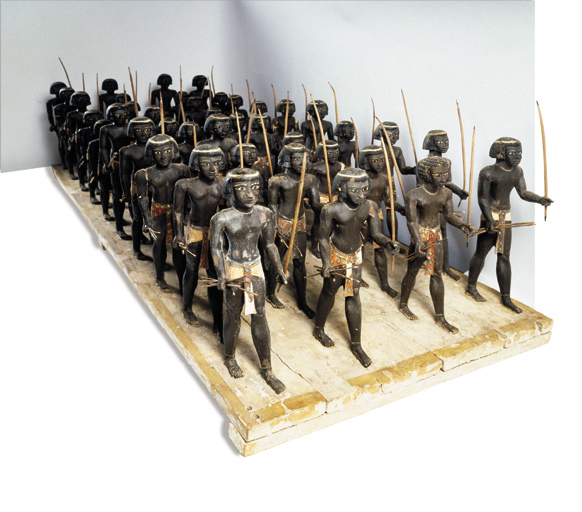Image Details

Photo by Jürgen Liepe
Marching as to war. Armed with bows and arrows, soldiers from Cush (also known as Nubia), or the Land of the Bow, are depicted in this wooden model from about 2040 B.C.E., found in a tomb in Assiut, Egypt. Famed throughout the Near East as skilled warriors, black soldiers were recruited by Egypt, Assyria, Greece, Rome and, according to the Bible, Israel (2 Samuel 18 and 2 Chronicles 14).
The Cushites’ international reputation as mercenaries, according to author J. Daniel Hays, clarifies the story behind one of the Bible’s more obscure characters, a Cushite named Ebedmelech, who played a pivotal role during the Babylonian siege of Jerusalem from 588 to 586 B.C.E.: When Jeremiah was condemned for preaching the futility of resisting Babylon, Ebedmelech interceded on his behalf and convinced Judah’s King Zedekiah to release the prophet. For this black foreigner to gain the king’s ear, Hays argues, he must have been a high-ranking military attaché hired by Zedekiah or dispatched by Egypt.
